
Question and Answers Forum
Previous in Permutation and Combination Next in Permutation and Combination
Question Number 105551 by mr W last updated on 29/Jul/20
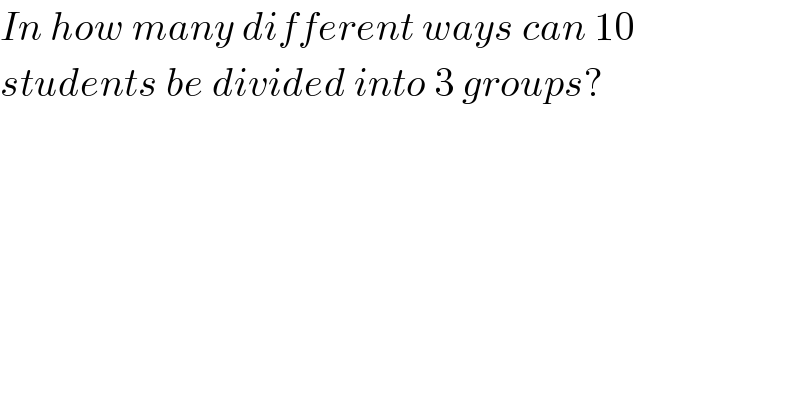
Answered by adhigenz last updated on 29/Jul/20
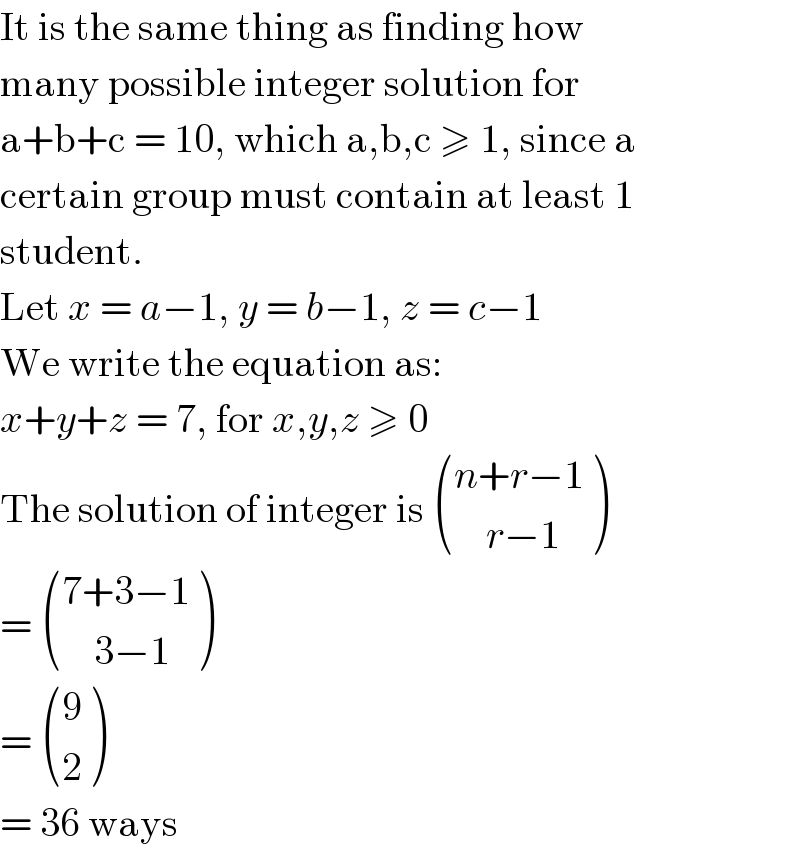
Commented by mr W last updated on 30/Jul/20
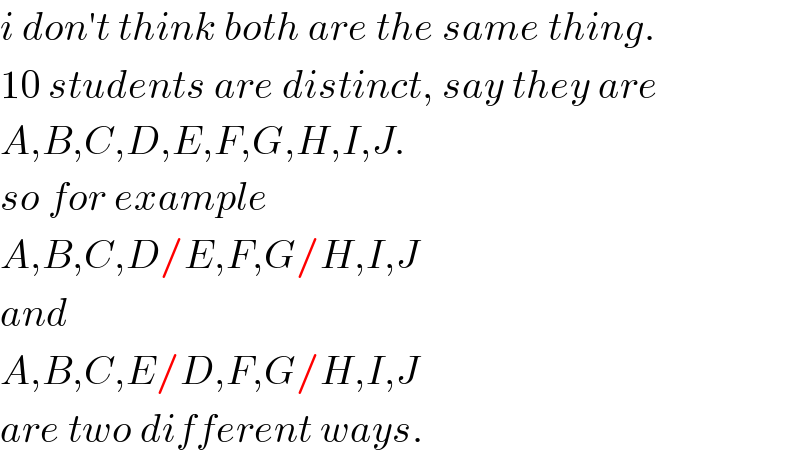
Answered by 1549442205PVT last updated on 30/Jul/20
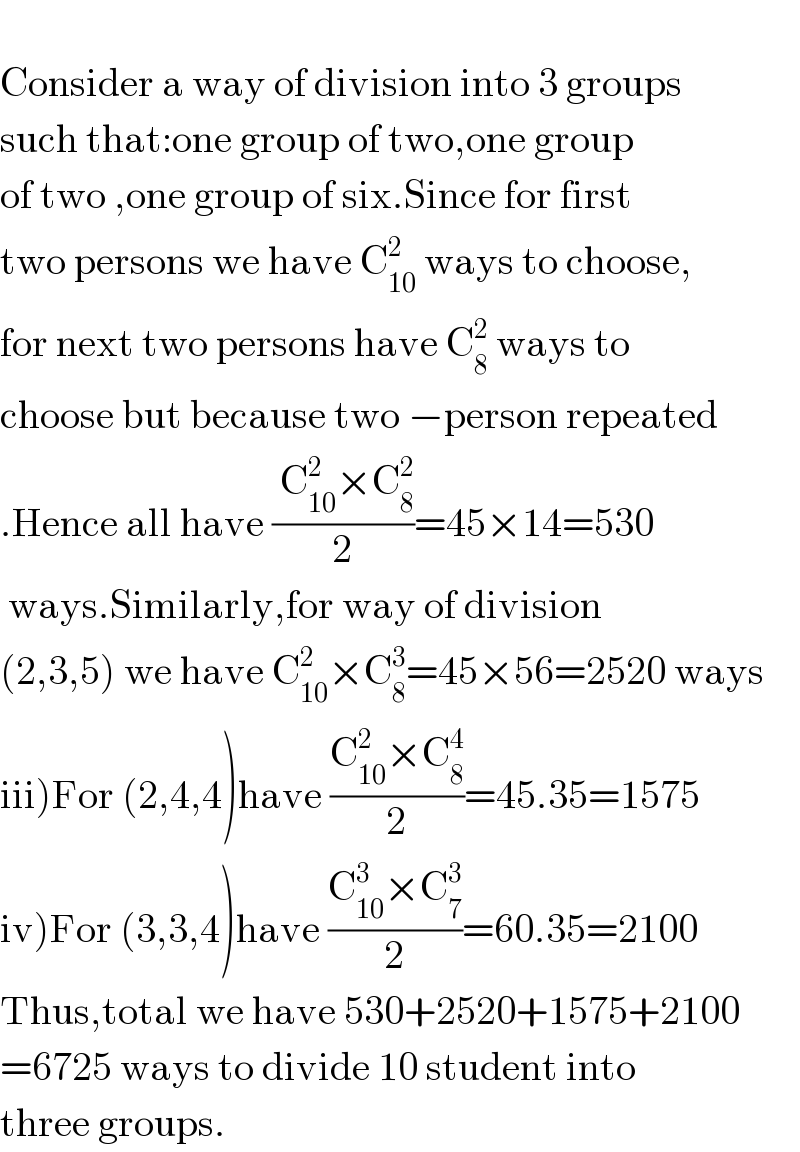
Commented by mr W last updated on 30/Jul/20

Commented by 1549442205PVT last updated on 30/Jul/20
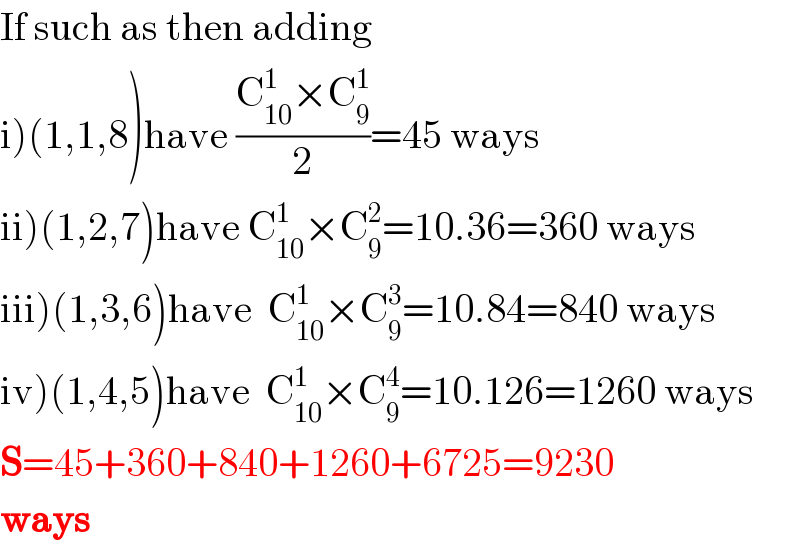
Commented by mr W last updated on 30/Jul/20

Commented by mr W last updated on 30/Jul/20

Commented by mr W last updated on 30/Jul/20

Commented by 1549442205PVT last updated on 30/Jul/20

Commented by mr W last updated on 31/Jul/20
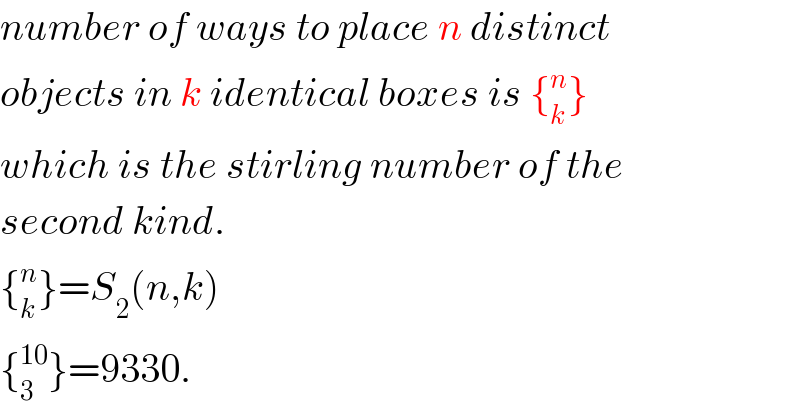
Commented by mr W last updated on 31/Jul/20

